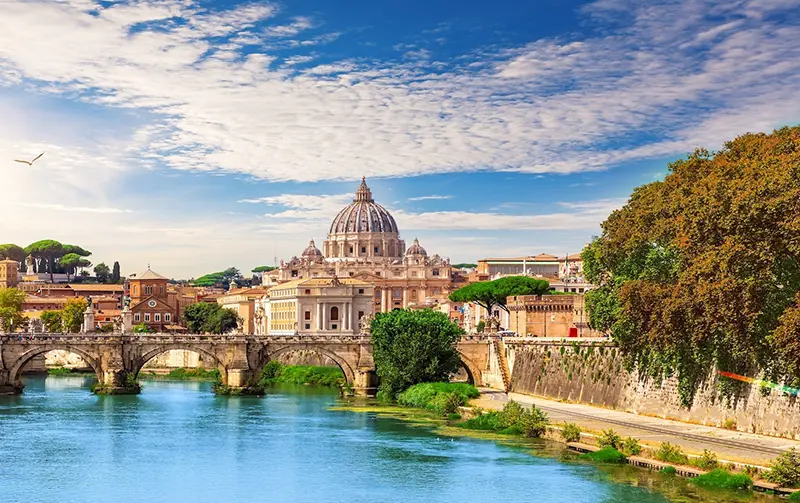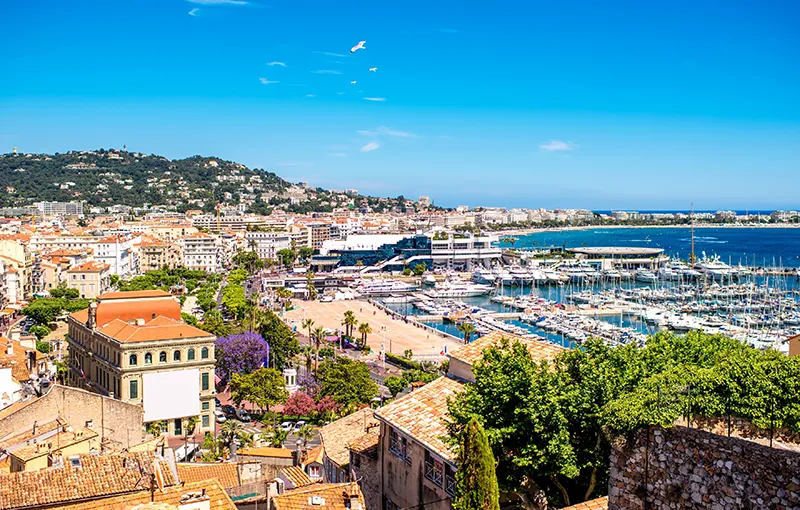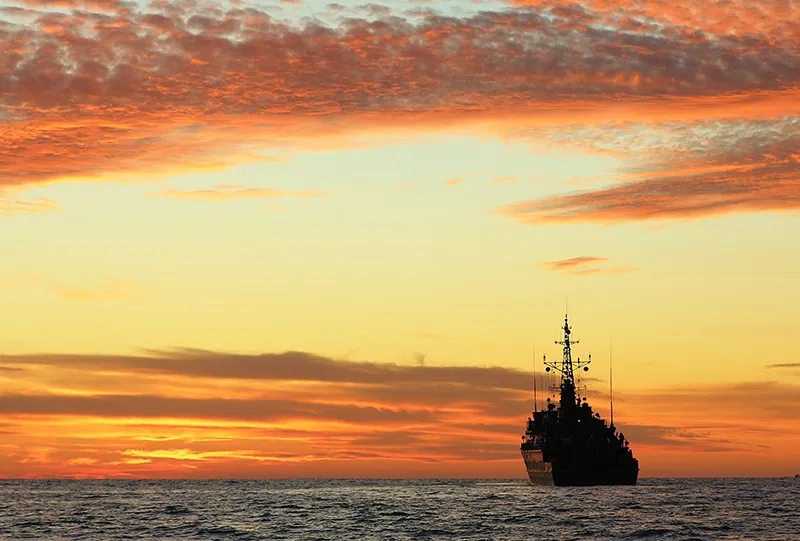Cambridge is a city and university center in the United Kingdom, located in the administrative county of Cambridgeshire, 80 km from London. The city is famous for its university, which is one of the oldest and most prestigious in the world.
One of the features of the city is the presence of the River Cam and many bridges, creating a picturesque scenery and atmosphere.
History
A convenient river route and trade road contributed to the emergence of the village on this site in Roman times – a small Roman fortress stood here.
The first mention of this settlement in written sources is found in 730. The monasteries and churches on the territory of Cambridge appeared even before the University of Cambridge was founded in 1209.
The story of how professors and students from Oxford left their university in protest and moved to Cambridge is linked to crime. According to legend, two scholars accused of raping and murdering a woman were executed in Oxford in 1209. Those who disagreed with this court decision founded a new university, Cambridge.
In 1233, Pope Gregory IX issued a decree confirming Cambridge’s status as a university. This status was later confirmed by Popes Nicholas IV and John XXII. The first college, Peterhouse, was opened in 1284.
The fame of the university city is so great today that dozens of settlements in the world bear the name of Cambridge. Developed since 1209 as a university town, Cambridge has retained an almost medieval appearance – there are no high-rise buildings, and most of the city’s residents are either students, teachers, or work in the university’s support system.
The regular layout of Cambridge, old colleges and residential buildings create a romantic atmosphere of Old England. There are many museums and historical monuments. The Folklore Museum, dedicated to the history of the city of Cambridge and its inhabitants, is located in a 15th-century building where the White Horse Inn operated for three centuries.
The Church of the Holy Sepulchre appeared in Cambridge in the 12th century and is modeled after the Church of the Holy Sepulchre in Jerusalem.
The Fitzwilliam Museum was established in 1816 on the funds of the Earl of Fitzwilliam, who bequeathed his collection of books and works of art and 100 thousand pounds sterling to the university. Today it is the largest museum, which presents rarities from Egypt and East Asia, a magnificent collection of French Impressionists, masterpieces of Western European painting of the ХII-ХХ centuries, antique collection, glass, coins and medals.
And the Cambridge Museum of Classical Archaeology has one of the world’s largest collections of ancient statuettes. The Cambridge Zoological Museum was founded in 1814, and many of its exhibits were collected by Charles Darwin himself (1809-1882), who studied at Cambridge. And the Museum of the History of Science houses a unique collection of scientific instruments dating back to the Middle Ages.
Cambridge University Library is one of the richest book collections in the world.
Cambridge is also home to the International Biographical Center, which has published one million (!) biographies in more than forty years of its existence.
With so many unique attractions, ancient Cambridge was officially granted city status only in 1851.

University City
Cambridge University is the second in the UK (after Oxford) and the fourth in the world. And by the number of Nobel laureates associated with the university – 87 people – the University of Cambridge ranks among the first in the world. In 2009, the university celebrated its 800th anniversary.
Today, the University of Cambridge is 31 colleges with 18,000 undergraduate and postgraduate students. Two colleges accept only people with higher education to prepare for a scientific career. Incidentally, there are several theological colleges. Three colleges admit exclusively women, while there are no longer any exclusively male colleges.
The most famous is the Royal College, which King Henry VI (1421-1471) founded in 1441. The buildings of the college are a magnificent example of late Gothic, in its chapel there is a famous painting by Peter Paul Rubens (1577-1640) “Adoration of the Magi”, donated to the college.
In 1448 Queens College was opened, where Erasmus of Rotterdam (1466-1536), writer, humanist, and great Renaissance figure, later taught Greek and theology for several years.
A year before his death, King Henry VIII (1491-1547), the same one who had been married six times and executed two wives on charges of adultery, opened Trinity College in 1546. This required the merger of several old colleges and boarding houses. One of the most famous alumni of Trinity College is Isaac Newton (1643-1727), the great scientist who discovered the law of universal gravitation, who studied at this college from 1661-1664 and later worked and taught here. There is a legend that the Mathematical Bridge at Queens College, built without a single bolt, was also designed by Newton.
The level of teaching at the Faculties of Science, Medicine, Law and Engineering at the University of Cambridge is particularly highly regarded in the world. Mathematics, modern and ancient languages, history, English and economics are also taught at Cambridge at the highest level. Each student of Cambridge University has a supervisor, who is responsible for the learning process, and a tutor, who takes care of the organization of the student’s life and living.
Among the alumni and teachers of the University of Cambridge – a whole pleiad of great names. It was here that many of the greatest discoveries were made. Thus, in the XX century in Cambridge the structure of DNA was discovered and the method of artificial insemination was created, the first “test tube babies” were born three decades ago. Now there are more than three million such people all over the world.
Isaac Newton, Charles Darwin, William Harvey, Paul Dyrek, George Thomson, Ernest Rutherford, Jane Goodell, James Maxwell, Francis Crick, Alan Turing, Stephen Hawkin, Fred Sanger – the list goes on and on, with many talented young scientists among Cambridge graduates today.
General information
- Cambridge, city in England, administrative center of Cambridgeshire.
- Language: English.
- Religion: Anglicanism, other denominations.
- Currency unit: pound sterling.
- The most important airports: Cambridge airport, the nearest international airports are in Luton and in London (Heathrow).
- The largest river: Kem (a tributary of the river Uz).
- Area: 115.65 km2.
- Population: 130,000 (2008).
- Population density: 1124 people/km2.
- Ethnic composition: 73.8% white British, 1.3% white Irish, 9.8% other white, 2.2% mestizo, 5.5% British Asian, 5.1% Chinese and others, 2.3% Afro-British.
Economy
- Educational and scientific center.
- Industry: engineering, food and printing.
- Services: tourism.
Climate and weather
- Temperate sea.
- Average temperature in January: +5°С, in July: +18°С.
- Average annual precipitation: 750 mm.
Attractions
- Royal College
- Fitzwilliam Museum
- Museum of Archaeology and Anthropology
- Kettle Yard Museum
- Zoological Museum
- History of Science Museum
- Church of the Holy Sepulchre
- Church of St. Mary the Great
- University Senate Building
- Folklore Museum
- Museum of History and Art
- Museum of Earth Sciences
- Scott-Polar Research Institute
- Bridge of Sighs
- Mathematical Bridge
- Cambridge University Library
- Queens College
- Peterhouse College
- St. John’s College
- Botanic Gardens
- Trinity College
- Clare College
- Pembroke College
- Trinity Hall College
- Magdalene College
- St. Catharine’s College
- Sidney Sussex College
- Emmanuel College
- Corpus Christi College
Fun Facts
- The youngest student ever to study at Cambridge is the future Prime Minister William Pitt, who entered the university in 1773 at the age of 14.
- With over 7 million books, the Cambridge University Library will be the world’s first fully digitized library, making its treasures available to all mankind via the Internet. This library holds the world’s oldest copy of the Koran, ancient Jewish texts, Christian manuscripts dating back to the 5th century, manuscripts of Isaac Newton, Charles Darwin, Edmund Halley and many other great minds of mankind.
- Every summer Cambridge hosts a traditional open-air festival dedicated to the great playwright William Shakespeare (1564-1616), which attracts many tourists and theater companies.
- The unified rules for the game of soccer are called the Cambridge Rules. They were created on the initiative of representatives of Cambridge University in 1846. And in 1857, Cambridge graduates founded the world’s oldest soccer club Sheffield.




